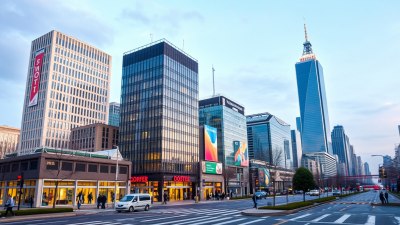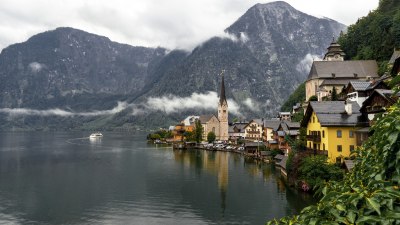Some Cities Recognize You Before You Arrive
Explore how cities use technology for recognition and personalization before your arrival.

Image created with Flux Schnell
In today's rapidly advancing technological landscape, the concept of cities recognizing individuals before they even set foot in their precincts is becoming increasingly prevalent. Thanks to sophisticated algorithms, artificial intelligence, and the Internet of Things (IoT), urban environments are evolving into smart cities. These innovations not only enhance urban experiences but also personalize them in ways we could only dream of in the past. This article delves into the mechanisms through which cities can recognize individuals and the implications of such technologies on urban life.
The Rise of Smart Cities
Smart cities utilize technology to optimize urban services and improve residents' quality of life. For many years, urban planners have been figuring out how to integrate technology into the fabric of city life. The rise of big data analytics, machine learning, and ubiquitous connectivity has enabled cities to collect and analyze vast amounts of data. This wealth of information, when implemented correctly, can create an environment where cities not only serve their inhabitants but anticipate their needs.
As cities evolve towards being smart, they adopt various tools that contribute to their overall efficacy. From traffic management systems that respond to real-time conditions to public safety solutions that identify potential risks based on predictive analytics, these innovations contribute to a more efficient and responsive urban experience.
Facial Recognition Technology
Among the various technologies employed by smart cities, facial recognition stands out as a game-changer. This technology uses algorithms to identify and verify individuals by analyzing facial features and matching them against databases. Several cities have incorporated facial recognition systems in public spaces to enhance security and streamline processes like airport check-ins.
The advantages of facial recognition are compelling. For instance, imagine arriving at a bustling airport only to find that your identification has already been verified, facilitating a seamless transition to your boarding area. Additionally, some cities are also implementing this technology in tourist hotspots to provide personalized recommendations based on visitors’ profiles.
How It Works
The operation of facial recognition technology in urban settings involves multiple steps. Initially, cameras strategically placed throughout the city capture images of individuals. These images are then processed through algorithms that analyze various features such as the distance between the eyes, nose shape, and jawline. By creating a unique 'faceprint', the system can match an individual's face with pre-existing data in law enforcement databases or social media profiles.
Once recognized, a series of actions can be triggered. For example, if a city system recognizes a visitor with a history of attending specific events, it could suggest activities, restaurants, or features based on previous preferences. This level of personalization enhances the tourist experience and fosters a welcoming atmosphere.
Privacy Concerns
While the benefits of facial recognition technology are significant, it raises complex privacy issues. The collection and storage of biometric data pose potential risks, such as misuse or unauthorized access. Citizens have valid concerns regarding consent and surveillance, fearing that their movements are being monitored without their knowledge.
Public discourse around these issues has sparked debates and led to calls for Regulation. Several cities have initiated discussions on establishing clear guidelines to govern the usage of facial recognition technology, balancing the benefits of security and personalization against the need for protecting individuals' rights.
Case Studies of Cities Implementing Recognition Technologies
Several cities around the world have started to adopt recognition technologies at various levels. In Singapore, for example, biometric systems are used extensively in their public transport and immigration processes. Upon arrival, visitors can process their entry within moments thanks to facial recognition tools designed to maintain security while ensuring a smooth ingress.
Similarly, in San Francisco, initiatives have been launched to assess the effectiveness of facial recognition in managing traffic flow, improving public safety, and offering tailored tourist experiences. Recognizing the ethical implications, the city is keen on finding a balanced approach that maximizes the benefits while addressing security concerns.
The Future of Urban Recognition
As we look ahead, the evolution of recognition technologies in urban areas is likely to gather momentum. The potential benefits are vast, from enhancing municipal services to personalizing the citizen experience, making city living more convening and enjoyable. However, it is essential for policymakers to draft regulations ensuring that technological advancements do not infringe upon individual rights.
Collaboration between technology companies and city authorities will play a pivotal role in shaping the frameworks that govern how recognition technologies are implemented. Transparency, accountability, and community involvement should be fundamental principles guiding this progress. If done correctly, we could foster urban environments that respect privacy while reaping the benefits of innovation.
Expanding Beyond the Urban Landscape
Recognition technologies are not limited to just major cities; they have implications for suburban areas, rural regions, and even tourist destinations. The ability to offer personalized experiences may also play a part in boosting local economies. For instance, a small town might implement facial recognition to provide tourism recommendations based on the visitors' profiles or encourage visits to specific local attractions.
This technology allows cities of all sizes to enhance real-time customer engagement while also bridging the gap between residents and tourists. By optimizing experiences for both groups, local businesses can thrive, and residents can enjoy increased prosperity and participation in their local economies.
The integration of recognition technologies within urban environments signifies a transformative era in how cities operate. The ability to recognize individuals before their arrival can facilitate greater efficiency and personalized experiences for residents and visitors alike. However, it is crucial to address the accompanying ethical implications, particularly concerning privacy, surveillance, and consent. As technology continues to evolve, the cities that prioritize comprehensive, transparent regulations and ethical frameworks around recognition technologies will be best positioned to enhance urban living standards and ensure that advances are beneficial for everyone.











